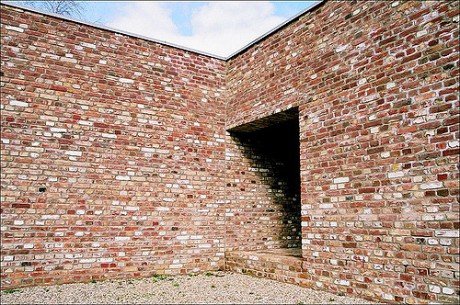


Kasper Astrup Schröder: BIG TIME
Glimrende, sagde hun, da jeg bad min kone om en vurdering af filmen om Bjarke Ingels. Jeg havde brug for en ”second opinion” efter at have set filmen ved en pressevisning på det store lærred i Grand Teatret. Og jeg ville gerne dele billederne fra New York med hende og billederne fra Amager, hvor arkitekten og hans tegnestue er i gang med det nye forbrændingsanlæg Amager Bakke, som vi kan se fra vores nærtliggende kolonihave.
Hvorfor, spurgte jeg den ellers altid kritiske filmkigger. Først og fremmest fordi han er så tiltalende, arkitekten. Og det er jo vigtigt, fulgte jeg op med, man skal synes om en films hovedperson ellers gider man jo ikke tilbringe halvanden time med ham eller hende.
Bjarke Ingels er sjov at være sammen med. Han er, når han taler dansk, den 40 årige uhøjtidelige drengerøv som elsker sit fede job, ”vil gøre en forskel”, er visionær og får den internationale anerkendelse som han fortjener, når man ser de mange bygninger, han har lagt navn til i Danmark and all over. Hans drømme er gået i opfyldelse.
Og han er den fremragende fortæller, når han på engelsk ved det
hvide papir tegner og fortæller – om tankerne bag forbrændingsanstalten og dens skibakke og om arbejdet i New York med at omforme verdens mest berømte skyline. For at bruge hans eget udtryk, på dansk, er det sindssygt spændende at se arkitekten med en tuschpen ved det hvide papir, filmet en face eller fra oven. Her træder filmens instruktør ind og arrangerer for tilskueren. Visualiserer hvad det er arkitekten kan og gør. Det er medlevende og oplysende.
Det samme gør sig gældende med de animerede kruseduller, som filmen igennem skiller sekvenser og indbyder til refleksion. Det er et fortællemæssigt scoop, som med det samme får tankerne hen til at her sker der noget oppe i hovedet, i hjernen, hvad der så også bogstaveligt talt gør for Ingels, der får konstateret en lille svulst, som der kigges nærmere på. I filmen kædes det sammen med at arkitekten har for meget at lave; for meget afhænger af hans person, kunderne forventer at han er der. Og det er han ikke, kan han ikke være, den ofte stressede mand hvis tegnestue har store kontorer i både København og New York.
Jeg havde behov for at se filmen igen sammen med en god filmkigger. Ved første kig var jeg i tvivl om det meget omkring Ingels – besøget i barndomshjemmet, prisceremonierne, kærligheden – ved andet kig forsvandt tvivlen, jeg kunne se, hvor godt det hele hænger sammen, hvor flot de observerende scener kædes med de arrangerede, der er fine øjeblikke, hvor Ingels tvivl kommer frem, hvor hans drengede facon pludselig forandrer sig og du ser et blik, der siger ”hvad skal det her ende med”, ”gør jeg det rigtige”. Bagsiden af medaljen. Og det er tydeligt, at filmens skabere under ham den happy end, som vi får.
Kasper Astrup Schröder har fulgt succesdrengen i 7 år. Han har selv filmet. Imponerende arbejde!
Filmen har premiere den 3.5 i biografer over hele landet via DoxBio.
Danmark, 2017, 85 mins.
